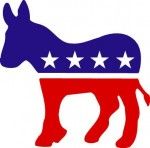What’s Left: New Power Player?

Any man who accidentally shoots another in the face, is a fan of torture and also happens to be known as the architect of a war should be very careful making claims that his book will be having “heads exploding.”
He might just be serious.
Yet former Vice President Dick Cheney used exactly those words to describe his recently released memoir.
In My Time: A Personal and Political Memoir, which came out Tuesday, is certain to make Mr. Cheney the talk of the town, at least until the next Gallop Poll shows yet another change in the GOP frontrunner (but that’s a different article for a different week). Mr. Cheney’s controversial yet distinguished 30-year career is still bitterly debated, but it is perhaps his infamous secrecy that will have people talking.
The shadow puppet master himself will likely give us a selective and limited look at his role in critical areas like foreign policy, the environment and the economy.
Leaked excerpts from the book include a passage where he privately recommended that the nation unilaterally bomb Syria in 2007 (fortunately, President Bush and the National Security Council unanimously shut him down).
The book reportedly also contains substantial jabs at Colin Powell, Condoleezza Rice and other administration officials.
Mr. Cheney, it seems, hopes to emerge as the last one standing (right, and therefore victorious) in the arena of Bush-era policy.
But just what is the legacy of the man who, despite his long career as the ultimate Washington insider with stints as a Congressman, Chief-of-Staff to President Ford and Secretary of Defense to the first Bush, was the architect of a deeply flawed administration?
Liberals, in response to this question, might rush to point out everything and anything negative about the former Vice President in an effort to posthumously (both in the figurative sense in regards to his career or literally, depending on how critical one finds a heartbeat in the definition of alive) smear him.
These criticisms range from the serious (think de facto legalization of domestic spying or of war crimes such as torture, which Cheney argued for and continues to defend) to the irrelevant and strangely bizarre (like the above mean joke about the fact that Mr. Cheney literally has no pulse).
While Google’s search engine optimization algorithms are no basis for a profound political argument, a quick search with the term “most powerful Vice President ever” yields result after result about Cheney, with one partial exception titled: “Joe Biden – Second Most Powerful Vice President in History.”
Aside from providing a fascinating trove of information about Vice President Biden’s rise to the number two job, it more interestingly contrasts the two vice presidents and the administrations that surrounded them.
The similarities between them, at least in the way that the two are involved in presidential decision-making (notably in foreign policy), are striking. Before Mr. Cheney, never had the vice president been so closely involved in driving and influencing executive decisions.
It is a trend that, in many areas, has continued with President Obama, who has Mr. Biden present at all major foreign policy meetings and even leaned on Biden for high-profile trips to Iraq as some kind of ambassador while that country lacked one.
It seems then, that even with a shift in the political parties in the White House, Dick Cheney’s presence at Number 1 Observatory Circle (Vice Presidential residence) is still and will continue to be felt for a long time.
The Constitution dictates no real responsibilities for the Vice President except for breaking tied votes in the Senate.
Mr. Cheney has left behind big shoes to fill, shoes that he stretched out by going far beyond the traditional “support-the-President and champion-a-cause” role of his office.
To many Americans, that stretching of “sub-executive” power (Cheney has claimed that the Vice President’s office is outside the Executive Branch and immune to its directives and congressional oversight) is frightening, dangerous and chillingly consequential. In a nation that recognizes precedent, we now live in an era of expanded Vice Presidential power.
Considering that the VP candidate on a ticket has a lot less relevancy in voting decisions than we pretend it does, it may do us well to start remembering that the Vice President can now be the 800-pound-gorilla in the Oval Office.
In a sort of parting advice during the transition period, Mr. Cheney told incoming Chief-of-Staff Rahm Emanuel to “keep the Vice President under control.” I guess hindsight is always 20-20.








